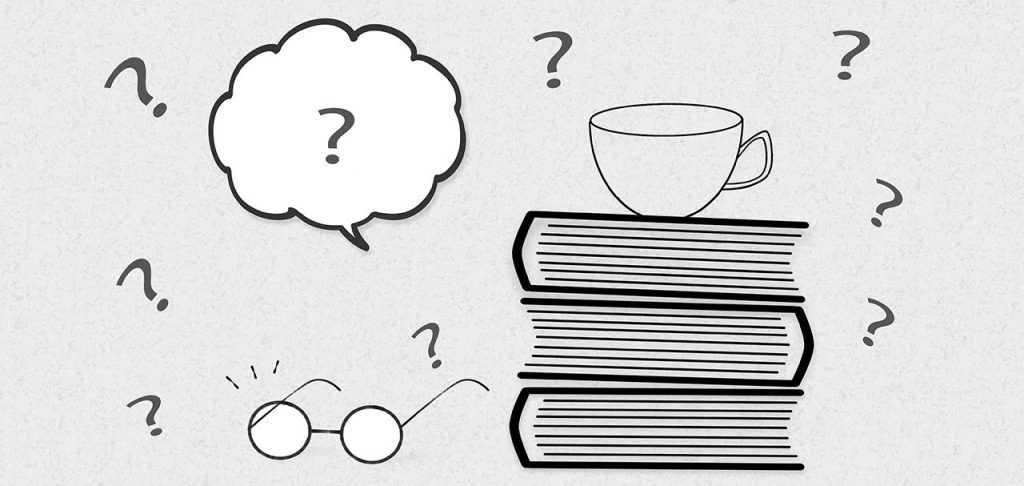
An A to Z Guide to Writing a Perfect Literary Analysis Essay
Literary Analysis Essay
Most times, when people pick up a book to read, it’s solely about getting entertainment (or acting like they are book lovers). Most times, you may find yourself reading to gain knowledge or something deeper from the story.
However, in a literature class, you would most likely be asked to read a book in a very special way. Usually, you may be asked to perform a literary analysis of the novel or text.
But how do you do that if you don’t even know what a literary analysis essay is all about? Well, in the article prepeared by our essay service, you will find out everything you need to know about literary analysis and how to write a winning essay.
Let’s begin, shall we?
What Is a Literary Analysis Essay?
For high-school or college students, reading, assimilating, and critiquing texts are all core aspects of the learning process. As such, it is important to learn the basics and intricacies of literary analysis. But first things first. What is a literary analysis essay?
Literary Analysis Essay Definition
Wondering what the perfect literary analysis essay definition is? It’s simple.
A literary analysis essay is any type of essay that comprises an in-depth, argumentative analysis of a given novel or literary work. It involves studying a text closely, interpreting its deeper meanings, and exploring the author’s choices. This kind of essay may examine novels, poems, plays, and any form of literature at all.
A literary analysis is not the same thing as a book review or summary. Your teacher or professor isn’t asking you whether you enjoyed the book or not. Rather, the literary analysis essay typically explores hidden themes and involves answering questions about the language, style, elements, and literary devices employed by the author in the text.
Before you dive into the world of analysis, it’s important to understand the purpose of this kind of essay and how it works. Only then can you start the writing process.
What Is the Purpose of a Literary Analysis Essay?
A literary analysis essay has one major purpose: to show that you understand and have carefully examined a literary work or text from several perspectives. It entails breaking down the text into the smallest core components and then analyzing each component to paint a bigger picture.
For instance, let’s assume you’ve been asked to analyze George Orwell’s Animal Farm. For any student, the first point of action might be to look up reviews of the book online. However, even though reviews may offer you a slightly deeper insight into the book’s message, they are completely different from a literary analysis essay.
In this essay, you are not supposed to simply plaster your opinions all over a document and click “send”. Rather, you should focus mainly on the analysis of all the components of the book. Express your studious approach to the text, rather than just your personal thoughts and opinions.
Sure, you could sneak in your opinions but keep them limited. Your writing should be clear, focused, and objective. The main goal is to prove to the reader that you have a strong point or case regarding the literary work in question.
How to Start a Literary Analysis Essay

Writing a literary analysis essay is quite simple once you start off on the right path. If you’re looking to write this type of essay for a class project or assignment, here’s how to start:
1. Read the book
If you’re trying to write a literary analysis essay, an obvious first step would be to read the book before penning down your points. Reading to analyze a literary text is quite different from reading for entertainment.
Here, you have to read closely to pick up any hidden details or themes that the ordinary reader may have missed. It is advisable to have a pencil when reading the text. This way, you can easily make notes, underline important words or point out confusing details.
Study the subject and form of the text and then write down your observations in a small note.
2. Ask the necessary questions
Starting a literary analysis essay may seem confusing at first, especially when you have multiple ideas rushing at you simultaneously. However, you could always start by asking yourself several pertinent questions such as:
What part of the text had a striking effect on you?
Did any scene, line or event strike you? If it did, you can always expand on the scene to draft a great essay. For instance, in George Orwell’s Animal Farm, many readers were struck by the “Battle of the Cowshed” scene where the animals bravely fought off an attempt to retake the farm by humans.
What confused you?
In some cases, you may stumble upon a confusing character, theme or event in the book. Explore these confusing elements and try to get to the root of their presence in the text.
Were there any noticeable patterns?
Is there a pattern to be noticed in the text? If there is, follow the pattern closely to find out its significance and thematic implications. For instance, in Chimamanda Ngozi Adichie’s Purple Hibiscus, there was a pattern of abuse in the Achike family. This pattern was linked to Eugene’s religious fanaticism and his inherent need to control his family members.
Did you notice any contradictions?
In some cases, complex novels may contain several contradictory themes or events that you would need to explore. For instance, in George Orwell’s Animal Farm, the mantra, “All animals are equal” is contradicted by Napoleon’s treatment of Boxer after the latter’s usefulness has elapsed.
Examples of good questions
Some examples of good questions to explore in your essay include:
- What does Boxer’s death represent?
- Who is the real Lord of the flies?
- What does the conch symbolize?
3. Collect evidence
Once you have outlined the questions you want your essay to answer, you can then go through the book to find evidence that will help you answer the questions. Pay close attention to certain symbols and images that correlate with your topic.
The evidence for your literary analysis essay often lies in the elements of the text which you will need to analyze. Here are some of the core elements to look out for:
Elements of the story
This involves the major framework of the text – the plot, major characters, and other supporting elements. They include:
- Plot: This is the narration of events in the text. What happened? How did it happen?
- Characters: This involves the people around whom the plot is centred. The main character is known as the protagonist while their opponent is known as the antagonist.
- Setting: This refers to the time, place and conditions where the literary text took place. Did the actions take place in 18th century London?
- Conflict: This refers to the major tension or bone of contention in the text. In most cases, the protagonist may be trying to achieve a goal while the antagonist stands in their way.
- Themes: The theme is the main idea or message that the text is trying to pass across. Usually, there may be one or two central themes and several supporting or underlying themes.
- Narrator: The narrator is the person telling the story or reporting events that took place in the text. The narrator may be one of the characters or the author.
Literary elements of style
The elements of style refer to all other elements that the author used to create the story. Think of it as the colors or spice of the story.
The elements of style in any literary text include:
- Point of view
- Structure and organization
- Syntax
- Diction
- Tone
- Imagery
- Figures of speech
4 Construct a solid thesis statement
After collecting and examining all relevant evidence, the next step will be to create a solid thesis statement that will shape the direction of your essay. The thesis is a claim about the literary text and should be supported by sufficient facts, evidence and arguments in order to convince your readers.
Your thesis statement should be:
- Provable: You should be able to prove your thesis statement through evidence from the text itself. This explains why you should never frame your personal opinion as a thesis statement. For instance, a thesis like “Arms and the Man is Bernard Shaw’s greatest play” is weak because it can’t be proven by any evidence or facts from the text.
- Arguable: Readers should be able to argue your thesis statement if they wish to do so. As such, avoid using facts like “Animal Farm is a critique of the Russian Revolution and Soviet Union” as a thesis statement. Instead, you could say something like: “Even though Snowball was painted as a traitor by Napoleon and Squealer, he displayed several heroic qualities at the Battle of the Cowshed, proving himself to be a hero with higher leadership capabilities than the two of them“.
- Specific: Resist the temptation to draft a vague thesis statement that points in no particular direction. Be as specific as possible and leave no room for assumptions or misinterpretations on the part of your readers.
- Surprising: Your thesis statement should not state the obvious. Rather, it should point at hidden themes or interpretations within the text.
5 Develop and organize arguments
Once you have formed your thesis statement, you can then begin to organize the examples and arguments that will back it up. These examples will form the middle of your essay and convince the reader that your thesis is credible and believable.
It is important to note that there is no clear-cut way of forming and organizing your arguments. It all depends on the essay prompt and what it asks you to do. Some essay prompts may require you to compare and contrast certain characters or elements in the text while others may ask you to debate a certain statement.
Literary Analysis Essay Outline
Typically, a literary analysis essay outline is divided into three major parts namely:
- Introduction
- The body
- Concluding paragraphs
When drafting your essay outline, it is important to pay close attention to each part and ensure that you don’t write the introductory paragraph at the end of the essay and vice-versa.
Here is a break down of what each part of the essay entails:
Introduction
The introduction is the first part of the essay where you present your thesis, address the issue at hand and establish yourself as a credible, authoritative analyst. This part of the essay may vary in length but if you’re writing a high school assignment, it’s advisable to keep it to one or two paragraphs.
Your introduction is meant to ease your readers into the rest of the essay. As such, you should pique the reader’s interest and give them a hint of the direction the essay will take.
In your introduction, try to avoid overly praising the work or the author. Statements like “Bernard Shaw’s Arms and the Man is the greatest play ever, surpassing all Shakespeare’s works” may cause your readers to believe you’re biased and this would affect your essay’s credibility.
Be specific in your introduction without making any overbearing assertions or claims.
Pro Tip: When drafting your introduction, keep it simple and straight to the point. Avoid throwing in unnecessary puns, details or comparisons just to impress your readers. They will appreciate a concise and straightforward introduction.
Body paragraphs
The body paragraphs come right after the introduction. Here, you present facts, evidence and arguments to support your thesis statement. In this section, how you organize your points depend mainly on the essay prompt or question.
When drafting the body of your essay, it is important to always begin with a strong topic sentence. A strong topic sentence gives the reader a hint of what issues will be addressed in the paragraph. For instance, a topic sentence like: “Domestic violence and fanaticism are major themes in Purple Hibiscus” is very weak and vague. However, you could go for a stronger topic sentence such as: “Eugene’s penchant for abuse and indoctrination stems from the traumatic childhood experiences he went through at the hands of the Catholic priests.”
When writing your body paragraphs, you should make use of effective transitions to link paragraphs and lines of thoughts. Some transition words or phrases you could use include: in contrast, in comparison, however, similarly, furthermore, etc.
Conclusion
The conclusion is basically a summary of all the points you have stated in your essay so far. In this section, you could also hint at a significant point or lesson to be learned. However, your conclusion shouldn’t just end at restating or summarizing your thesis statement. Rather, it should go on to prove why your stance is relevant to the literary society.
In your conclusion, you could suggest a new perspective to the subject matter. However, don’t overdo it by adding too many extra or irrelevant details. You’d only end up writing an entirely new essay in the conclusion.
Literary Analysis Essay Examples
Writing a literary analysis essay is quite simple once you have been armed with the right tips and guidelines. However, it can be hard to get the hang of it at first.
If you still aren’t sure how to write a literary analysis essay, you can always refer to any good literary analysis essay example. Here are some sample of well-written essays:
https://web.cocc.edu/cagatucci/classes/eng104/midtermexamples.htm
20 Literary Analysis Essay Topics
Here are some sample literary analysis essay topics:
- Discuss the intertwining of fate and love in Shakespeare’s Romeo and Juliet
- The significance of poverty, institutions and class in 19th century England as portrayed by Charles Dicken’s Oliver Twist
- How did Bernard Shaw’s Arms and the Man explore the realities of war?
- Explore the clash of knowledge vs ignorance in Arms and the Man.
- Explore the theme of revenge and its implications in Shakespeare’s Hamlet.
- How did George Orwell’s Animal Farm address the corruption of socialist ideals in the Soviet Union?
- How did Oliver Twist inquire into the nature of individualism and social bonds in 1830s England?
- Compare and contrast the characters of Snowball and Napoleon in Animal Farm.
- The role of women in society as portrayed in Shakespeare’s Hamlet.
- The significance of omens in old Roman society as portrayed in Julius Caesar.
- Tyranny and power in Shakespeare’s Julius Caesar.
- Power and exploitation in The Tempest
- Compare and contrast the characters of Prospero and Alonso in The Tempest.
- Is the British society represented in Oliver Twist a true reflection of today’s society?
- The illusion of justice in Shakespeare’s The Tempest.
- Irony and satire in Oscar Wilde’s An Ideal Husband
- The use of disguise in Shakespeare’s Hamlet
- Allegory and literary devices in Jonathan Swift’s Gulliver’s Travels
- The use of biblical themes and allusions in Beowulf
- How Jane Austen’s Pride and Prejudice addresses feminine stereotypes and the role of women.
Useful Tips for Literary Analysis Essay
If you’re looking to write a great literary analysis essay, here are some tips that you may find useful:
Write in the present tense
When writing a literary analysis essay, it is important to avoid using the past tense. Instead, use the present tense throughout the essay. Here is a quick example of how to use your tenses in this kind of essay:
SAY: Eugene slaps his wife hard when he realizes that she is still holding the broken figurine pieces.
DON’T SAY: Eugene slapped his wife hard when he realized that she was still holding the broken figurine pieces.
Even though the past tense may sound more correct or appealing, literary conventions demand that you discuss the actions presented in any text in the present tense. This is because literature constantly exists as a present phenomenon, rather than a past one.
Use the third person pronoun
Typically, you should not involve yourself in the analysis by using first person pronouns such as I, me, we and so on. Most professors or teachers find the use of first or second pronouns too informal or laid back for an analysis essay.
The third person pronoun is the most widely accepted form for a literary analysis essay. As such, you should employ this in your work and stay consistent. For example,
SAY: Kambili is a naive young girl who soon realizes that pleasing her father is an impossible feat.
DON’T SAY: I think Kambili is a naive young girl because in most of the chapters I read, she seemed too eager to please her father.
However, there are exceptions to this rule. Your professor may prefer that you write in the first person to add an unconventional twist to the analysis.
Do not summarize the plot
When it comes to writing literary analysis essays, most students often end up writing a summary of the plot. You should not summarize or retell the plot. Rather, analyze the story in concise, literary terms. For instance,
PLOT SUMMARY: In Adichie’s “Purple Hibiscus”, the protagonist, Kambili, tries hard to please her abusive father who is deeply entrenched in religious fanaticism and hate. She, alongside her brother and mother, is constantly punished for minor misgivings such as eating during the Eucharistic fast. However, Kambili and her brother, Jaja undergo a reawakening and reconditioning when they visit their paternal aunt. After their visit, they begin to stand up to their father who is eventually poisoned to death by his wife, Beatrice. Jaja covers up for his mother by taking the blame for the murder and goes to jail.
ANALYSIS: Although Kambili is initially portrayed in “Purple Hibiscus” as a quiet, withdrawn girl, the story explains how a change in environment can trigger a reconditioning in young children. For instance, after she visits Aunty Ifeoma’s house, Kambili becomes more carefree and extroverted. She makes new friends at school and even falls in love with a young priest.
The peak of Kambili’s character progression occurs when she stands up to her father and prevents him from destroying her grandfather’s portrait, despite being beaten to a coma.
Support your points with several quotations
Your literary analysis essay should be supported with sufficient quotations and paraphrases from the text or famous scholars. However, you should also ensure that a majority of the essay is written in your own words in order to give it credibility and authenticity.
Write a Literary Analysis Essay with EUSA
Ready to write your literary analysis essay? You can save yourself the stress and let us write it for you! At our essay writing service, we help students achieve perfect grades by writing high-quality essays, term papers and dissertations.





